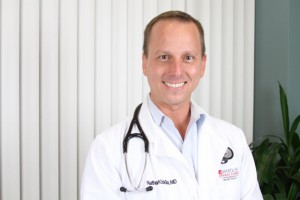
Altitude Sickness by Nathan Kiskila, M.D.
Many of our patients are traveling to the mountains this winter on vacation. Altitude sickness is a general term encompassing a group of disorders which occur at higher altitudes. The most common kind of altitude sickness is acute mountain sickness. Symptoms may include fatigue, lightheadedness, headache, sleepy, no appetite and nausea or vomiting. Symptoms can manifest very quickly and you should not travel or climb any higher until you feel better. Symptoms will usually subside within a day or two with rest. The altitude height and rate of ascent has a direct correlation to the severity of the symptoms.
A second and less common type of altitude sickness is high altitude cerebral edema. This is a more severe form of acute mountain sickness which involves swelling of the brain. Symptoms may include confusion, weakness, walking difficulties, and acting drunk. This is more serious and you should get help right away and move to a lower altitude immediately.
The last type of altitude sickness is high altitude pulmonary edema or fluid in the lungs. This presents with coughing, shortness of breath, congestion, and trouble walking uphill or up a flight of stairs. It is another less common type of altitude sickness and may take 2-4 days after traveling to start. You should get help right away and move to a lower altitude immediately.
If you experience serious symptoms, seek medical attention right away. Doctors can give a steroid shot to decreases brain swelling. They can administer oxygen to help breath and in some cases they might place you in a hyperbaric chamber to simulate lower altitudes.
To help mitigate the symptoms of altitude sickness while traveling, go slowly and stretch your trip out to give your body time to adjust. Avoid alcohol, sleeping pills, and postpone physical activity the first day. If you are prone to altitude sickness, your doctor might prescribe a medicine to help treat and prevent it.
The information provided is for general interest only and should not be misconstrued as a diagnosis, prognosis or treatment recommendation. This information does not in any way constitute the practice of medicine, or any other health care profession. Readers are directed to consult their health care provider regarding their specific health situation. Marque Medical is not liable for any action taken by a reader based upon this information.
